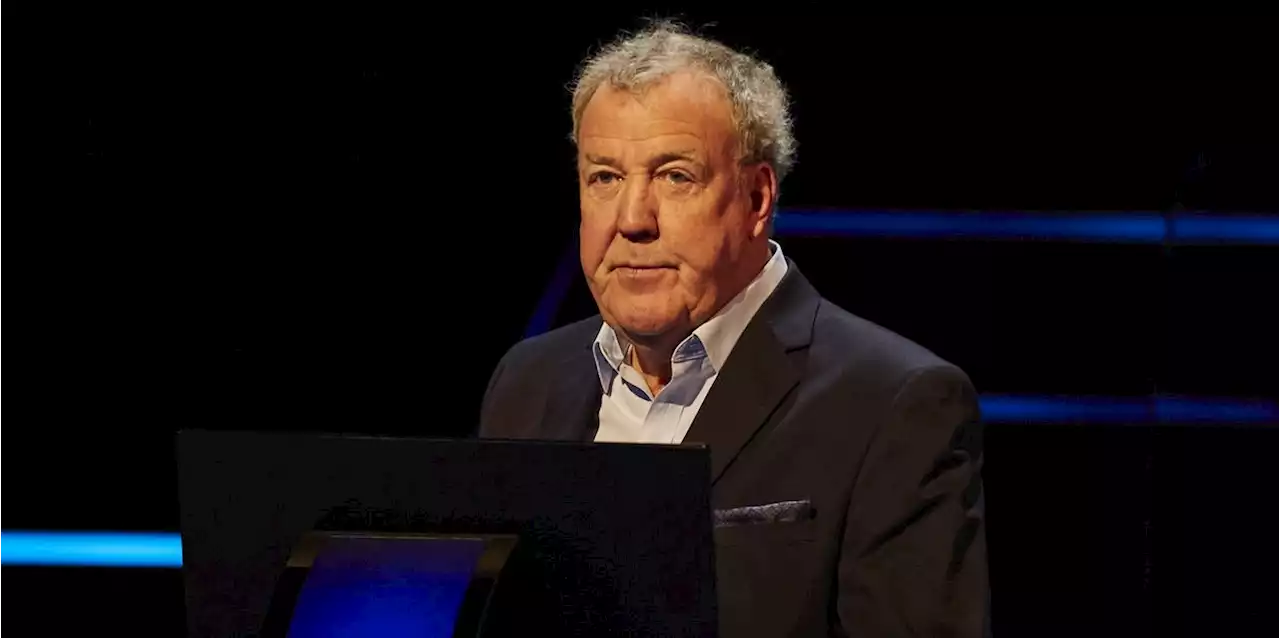Who Wants To Be A Millionaire? Contestant's Slow Play Sparks Outrage

Table of Contents
The Contestant's Deliberate Strategy
The source of the controversy stemmed from contestant, [Insert Contestant's Name if available, otherwise use "the contestant"], whose approach to the Who Wants To Be A Millionaire? questions was anything but swift. Their strategy involved:
- Excessively Long Pauses: Before answering each question, the contestant engaged in prolonged pauses, often lasting several seconds, sometimes even minutes. This wasn't a momentary hesitation; it was a deliberate tactic.
- Meticulous Note-Taking: The contestant meticulously documented every thought, potential answer, and elimination process on their notepad. This meticulous note-taking further added to the already drawn-out process.
- Multiple Re-readings: Each question and answer choice was read multiple times, often aloud, creating a significant delay in the game's progression.
The contestant's stated reasoning, if any, should be included here. For example, they might have claimed it was a carefully planned strategy to minimize risks and maximize their chances of winning the grand prize. It is important to analyze whether their actions technically violated any of the show's rules regarding time limits. Including quotes from the contestant justifying their actions would add depth and authenticity to this section.
Viewer Backlash and Social Media Reaction
The contestant's deliberate slow play ignited a firestorm of criticism across various social media platforms. The #MillionaireSlowPlay hashtag quickly trended, with thousands of viewers expressing their frustration and anger:
- Twitter Exploded: Twitter was awash with comments expressing anger, disbelief, and accusations of the contestant wasting valuable airtime. Many viewers felt their actions were disrespectful to the show's format and the other contestants who might have had quicker, more efficient strategies.
- Facebook Fury: Similar sentiments were echoed on Facebook, with various groups and pages dedicated to Who Wants To Be A Millionaire? becoming platforms for expressing outrage.
- Negative Reviews: The show's online reviews also reflected the widespread negativity, with many viewers stating they would no longer watch the show due to this incident.
The intensity of the negative reaction speaks volumes about the audience's expectations of pacing and engagement in a game show environment. The viewers’ anger stems from a perceived lack of respect for the show's format and the overall viewing experience.
Impact on the Show's Reputation
The controversy surrounding the slow-playing contestant raises concerns about the show's reputation and potential long-term effects:
- Show's Response: The response from the show's producers or network is crucial here. Did they address the viewers' concerns? Did they issue a statement defending the contestant's right to play strategically or apologize for the disruption to the viewing experience?
- Ratings and Viewership: The incident could potentially impact the show's ratings and viewership, especially if the negative publicity dissuades some viewers from watching future episodes.
- Rule Changes: This event could spur the show to re-evaluate its rules regarding time constraints and strategic gameplay. The introduction of time penalties or stricter guidelines might be considered to prevent similar incidents in the future.
The Ethics of Slow Play in Game Shows
The Who Wants To Be A Millionaire? controversy brings to light the ethical considerations of strategic gameplay in game shows:
- Fair Play vs. Strategic Advantage: Is it fair for a contestant to employ a strategy that significantly slows down the game, even if it doesn't break any explicit rules?
- Audience Expectations: Game shows are designed to entertain. Does a contestant have an obligation to consider the audience's enjoyment and avoid excessively drawn-out gameplay?
- Unspoken Rules: While there might not be explicit rules against slow play, are there unspoken expectations regarding pacing and engagement that contestants should adhere to?
- Need for Regulation: Should there be clearer rules or penalties for excessively slow play to balance individual strategies with the overall viewing experience?
Conclusion
The Who Wants To Be A Millionaire? contestant's deliberate slow play ignited a significant controversy, highlighting the complex relationship between strategic gameplay and audience expectations in televised game shows. The viewer backlash, primarily fueled by frustration over wasted time and perceived disrespect for the show's format, sparked debates about fair play and the ethical implications of extreme strategic approaches. The incident serves as a case study examining the tension between individual competitive strategies and the overall viewing experience, and its impact on the Who Wants To Be A Millionaire? brand. The show's response, or lack thereof, will likely determine the lasting impact of this controversy.
What are your thoughts on the Who Wants To Be A Millionaire? contestant's slow play? Share your opinion in the comments below. Let's discuss the ethics of strategic gameplay and whether rules need to be changed to prevent similar incidents in future Who Wants To Be A Millionaire episodes and other game shows.

Featured Posts
-
 Ps 5 Stuttering Issues Investigating Common Causes And Fixes
May 07, 2025
Ps 5 Stuttering Issues Investigating Common Causes And Fixes
May 07, 2025 -
 Two Year Hiatus Ends Lewis Capaldi Plays For Mental Health Charity
May 07, 2025
Two Year Hiatus Ends Lewis Capaldi Plays For Mental Health Charity
May 07, 2025 -
 Ny Stjaernturnering I Nhl Avslutar Konflikten
May 07, 2025
Ny Stjaernturnering I Nhl Avslutar Konflikten
May 07, 2025 -
 Julius Randles Impact A Shift In Timberwolves Fan Sentiment
May 07, 2025
Julius Randles Impact A Shift In Timberwolves Fan Sentiment
May 07, 2025 -
 Are Rihanna And A Ap Rocky A Couple New Romance Speculation
May 07, 2025
Are Rihanna And A Ap Rocky A Couple New Romance Speculation
May 07, 2025
